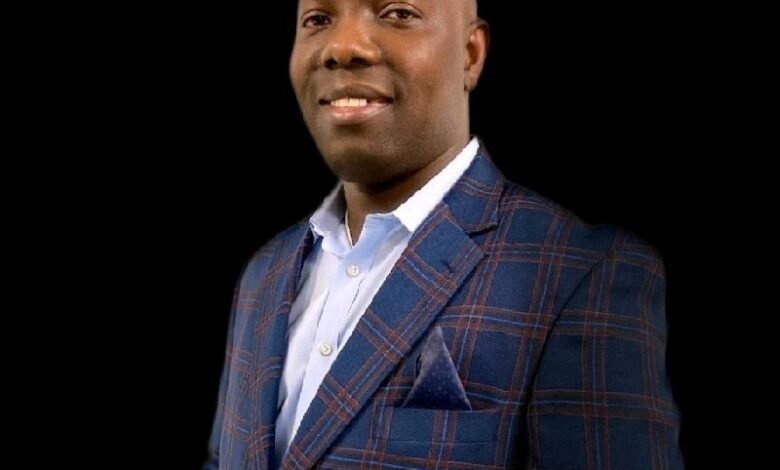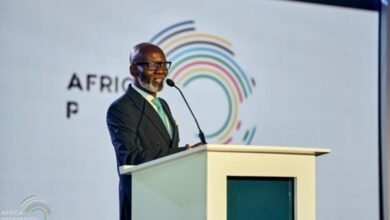Paul Ndiho: « From Cocoa Plantations in West Africa to Hersheypark in Pennsylvania: A Farmer’s Son Sees Both Worlds »
Cart’Afrik today gives the floor to Paul Ndiho, a journalist and son of a Ugandan coffee farmer, who signs a powerful op-ed: from the cocoa plantations of West Africa to the rides of Hersheypark in Pennsylvania, he lays bare the striking contrast between the wealth of chocolate giants and the poverty of the very farmers who make it all possible. A lucid reflection on economic injustice and the dignity of African farmers. By Paul Ndiho

I didn’t grow up under cocoa trees—but I know exploitation when I see it. I grew up among coffee bushes in the highlands of Uganda, where my father still farms with blistered hands, unshaken dignity, and hope that refuses to die.
Even after decades of labor, he earns just a few dollars a day. Meanwhile, the global coffee and chocolate industries rake in billions. That’s not just unfair; it’s a system designed to keep farmers poor.
As a journalist and a father, I’ve had the rare privilege of seeing both ends of the global supply chain. That contrast hit me hardest when I visited Hersheypark in Pennsylvania—a chocolate-powered wonderland thousands of miles away from the farms that make it possible.
We laughed through the rides. We toured Chocolate World. My kids made their candy bars. It was magical.
But I couldn’t shake the irony: here we were, basking in chocolate euphoria, while millions of farmers—like my father—will never get a taste of this joy. And they’re the ones who make it all possible.
So, when I found myself at Hersheypark in Pennsylvania with my children, the irony was hard to ignore. There I was, standing in line at one of the world’s most famous chocolate destinations, knowing firsthand how farmers—just like my father—rarely get a taste of the sweet profits.
Sweet Rides, Bitter Truths
We rode through Chocolate World, giggling as we learned that it takes about 270 cocoa beans to make a pound of chocolate. We dipped pretzels in gooey chocolate sauce and wore our factory-made smiles. But as my kids crafted their candy bars with sprinkles and swirls, I couldn’t help but see another image: kids back in Ghana and Côte d’Ivoire, hauling sacks of cocoa pods under a punishing sun.
Cocoa Farmer, Ivory Coast
There are two worlds in the chocolate business. One that delights, dazzles, and profits. The other—hidden beneath the gloss—is marked by blisters, poverty, and backbreaking labor. The same principle applies in the coffee industry. The crops are different, but the injustice is painfully familiar.
Who Grows Your Chocolate?
Let’s not sugarcoat it: 70% of the world’s cocoa comes from West Africa. And yet, you’d never know it walking down the aisles of a U.S. supermarket. The cocoa is grown in Ghana, Côte d’Ivoire, Nigeria, and several other African countries. But the profits? They flow through Europe and North America.
Cocoa Farmers in Ghana
Farmers in producing countries like Sierra Leone, Liberia, Equatorial Guinea, São Tomé, Uganda, and Madagascar are often caught in a losing game of overproduction and price volatility. Some make as little as $30 to $110 a year. Meanwhile, the global chocolate industry rakes in billions.
Big Business, Tiny Paychecks
The chocolate market is booming—worth $120 billion in 2024 and expected to reach $186 billion by 2034. In the U.S. alone, it’s valued at nearly $28.5 billion.
But those numbers mean little to the farmer sweating in the field. According to Fairtrade, cocoa growers receive just about 6% of a chocolate bar’s final price. Most live on less than $2 a day. Women often earn just 30 cents. And let’s not forget the 2 million children estimated to be working on cocoa farms.
Companies like Hershey and Mars have launched programs with good intentions. Hershey’s « Cocoa For Good » strategy commits $500 million by 2030. They’ve pledged to tackle child labor, improve farmer incomes, and protect forests. But critics argue the impact is limited. These programs are often surface-level. What farmers need is a living wage—and a seat at the table.
The Hidden Costs
Beyond poverty, cocoa farming comes at an environmental cost. Approximately 70% of illegal deforestation in Côte d’Ivoire is attributed to cocoa production. Climate change threatens to wipe out up to 60% of current growing areas. It’s an unsustainable future for a product the world can’t seem to get enough of.
A Tale of Two Realities
From a business perspective, everything at Hersheypark is packaged to sell happiness—the fun rides, the feel-good stories, and of course, the chocolate. But over 5,000 miles across the Atlantic, Cocoa farmers can barely make ends meet. It’s a world away, but it shouldn’t be a world apart.
Cocoa Farmer in Ivory Coast
Hersheypark was a joy. My kids had a blast. We made our chocolate bars—an experience my children will never forget. But I couldn’t shake the feeling that something was missing from the narrative.
There’s little mention of the farmers. No tribute to the hands that harvested the pods. No sign of the sacrifice behind the sweetness.
A Call for Fairness
This story isn’t just mine—it’s the story of millions of farmers across Africa, Asia, and Latin America. My father is still farming coffee in East Africa. Like countless others, he rises with the sun, pours his soul into the soil, and harvests a crop the world craves—but one that barely pays enough to cover medical bills or daily meals.
He is not alone. His story is echoed by cocoa farmers in Côte d’Ivoire, by tea growers in Kenya, by sugarcane workers in India. They are the backbone of global trade—and yet they live on its margins.
This piece is for them. For every African farmer who prays for rain, hustles through drought, and dares to dream that their children might one day live a better life. For the farmer who produces world-class beans and gets pocket change in return. For the parent who must choose between feeding their family and sending their child to school.
Farming is noble work. It deserves more than pity—it deserves justice.
As a journalist, I’ve traveled through cocoa farms in Côte d’Ivoire and Ghana. I’ve seen the tough decisions families are forced to make. I’ve also seen the pride and perseverance that keep them going.. It’s about justice. It’s about dignity. It’s about acknowledging the people at the very beginning of the supply chain.
It was a privilege to tour the world of chocolate with my family. Watching my children make their candy bars was a beautiful memory. But the farmers who made that moment possible deserve better.
Hershey. Mars. Nestlé. This is your moment to lead—not with vague corporate responsibility campaigns, but with action. Pay farmers a living wage. Build direct trade relationships. Make transparency a genuine part of your brand.
Chocolate should be a treat for everyone—not just for those lucky enough to afford a theme park ticket.
*Paul K. Ndiho is an independent multimedia journalist, podcaster, and founder of Ndiho Media. He is the son of a Ugandan coffee farmer and covers Politics, development, innovation, and technology in Africa.
With the kind permission of Ndiho Media.






